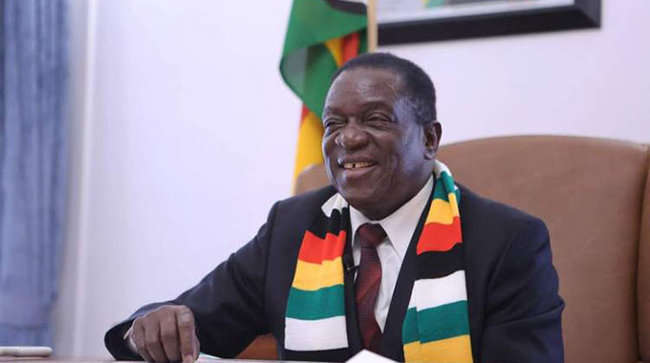
The ManicaPost

Freedom Mutanda
Post Correspondent
AS Heroes’ Day draws closer, one cannot fail to realise how the commemoration of that day is intimately entwined with Vision 2030 as espoused by President Mnangagwa.
The genesis of anti-capitalist intrusion into the land north of the Limpopo did not start in the 1960s as some fly-by-night historians are wont to believe.
Changamire Dombo and other Shona kings before and after him had a vision of a free Zimbabwe since he fought the Portuguese until they spread the lie that he was a wizard who could change the colour of cattle and his wizardry extended to the battlefield.
Fast forward to the Second Chimurenga and you hear similar yarns with the late national hero, Cde Vhuu, Michael Chakabva, cutting a legendary figure as the principal of vanishing when the battles became intense.
It is in the DNA of Zimbabweans to fight for what is right and next week, the whole nation will commemorate the nation’s heroes — living and the dead — who made it possible for Zimbabwe to be free.
Evidently, anti-colonial struggles were not confined to Zimbabwe alone with Algeria, Kenya, Angola, Guinea Bissau, Mozambique, South Africa and Mozambique easily coming to mind.
Zimbabwe not only wanted political and social independence, but economic emancipation.
With the advent of the new dispensation, there was a paradigm shift in the trajectory of the country as President Mnangagwa enunciated Vision 2030 with the aim of building the country’s economy to reach upper middle-income status and raise the people’s standard of living in the next nine years.
Freedom fighters always said they were fighting a system and not the colour of the implementers of a colonial policy that marginalised blacks from the mainstream economy and made them “hewers of wood and drawers of water” in the words of Sir Godfrey Huggins, a long serving Prime Minister in Rhodesia.
With the above in mind, the new Zimbabwean Government in 1980 democratised education, health and other public services.
Sadly, some Zimbabweans went into a comfort zone, relishing the fact that they had filled the shoes of the whites, and did not embrace innovation as the pivot for development.
While Zimbabwe’s literacy rate shot up, there was little regard for industrialisation and innovation in the education system, with many brilliant students frowning upon technical courses.
There, as a country, we lost the plot.
Eventually, graduates that did not have the technical skills to grow the country’s economy flooded the streets.
John Dewey, a renowned American philosopher and educationist, said: “If we teach today as we taught yesterday, we rob our children of tomorrow.’’
This is not the time to do things the normal way if we are to build the country as envisioned by the country’s freedom fighters and attain Vision 2030 as championed by President Mnangagwa’s administration.
It is now time to build Zimbabwe into the continent’s economic hub given that the country is the gateway to Africa.
Zimbabwe is open for business and industrialisation.
Thus, our education system is in the process of being adjusted so that it produces graduates that can drive the industrialisation agenda.
It should create innovators for Vision 2030 to come to fruition.
Like the heroes who fought for the nation, modern heroes ought to do something for the country and create an everlasting legacy.
It is no longer business as usual as Vision 2030 has to be attained for economic instability to be kicked out and thrown into the dust bin of history.
If Japan could come out of World War Two reduced to a rubble and rise to become one of the shining examples of industrialisation of our time, Zimbabwe can do the same.
The Asian Tigers, including Malaysia, have dominated industrialisation discourse over the last 30 years.
China, under Mao Tse Tung, developed industrially from 1949 to 1976, but it was Deng Xiaoping who opened up the economy.
By 2010, China overtook Japan as the world’s leading industrialised country. From 1978 to 2013, there was an unprecedented economic growth which was at 9,5 percent.
Zimbabwe can follow the same route.
The IMF has even projected that the economy will grow by 7 percent this year in the wake of the 2020/21 season’s bumper harvest.
There are several infrastructural developments taking place across the country, including the resuscitation of irrigation schemes and roads rehabilitation.
These projects will enable industrial growth.
The future looks bright, that can be the basis for optimism for the entire country.
President Mnangagwa’s vision is encapsulated in his speech at the Sixth Session of the African Regional Forum on Sustainable Development Goals which was organised by the United Nations Economic Commission for Africa.
“Vision 2030 is a key to end poverty. It addresses aspirations contained in Vision 2063 and Sustainable Goals, aimed at eradicating poverty in Africa,’’ he said.
Heroes’ Day is commemorated annually to pay tribute to all known and unknown individuals who contributed and paid the ultimate price for the freedom of Zimbabwe.
Vision 2030 ensures that the vision of the freedom fighters, war collaborators, ex-detainees and the generality of Zimbabweans who contributed in one way or the other towards Zimbabwe’s independence is attained.
All these people fought to end tyranny and restore Zimbabweans’ identity so that we can enjoy justice, peace and liberty.
An upgrade in the country’s economic status will help people realise their dreams. Indeed, Vision 2030 seeks to put to bed all the goals of the heroes who sacrificed so much for Zimbabwe.



